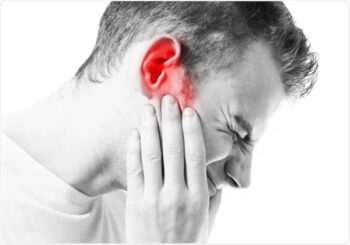By Sayer Ji
Contributing writer for Wake Up World
Tinnitus is a condition where you hear noises that are not from outside sounds. It is often associated with depression, insomnia, headaches, anxiety, difficulty concentrating and social isolation. Researchers estimate that 750 million people around the world and 1 out of 4 adults over 65 experience tinnitus.[i]
[pro_ad_display_adzone id=”110028″]
It is thought to be caused by age-related hearing loss, an ear injury, exposure to loud noises, brain issues related to neuron transmission or a problem with the circulatory system, but there is no known cure.[ii]
Scientists have researched 10 natural treatment options from ginkgo biloba, zinc, melatonin, antioxidants, flavonoids, vitamins, CoQ10, spirulina and ginseng to acupuncture/ electroacupuncture that can vastly improve your tinnitus symptoms and help you enjoy a higher quality life.
1. Ginkgo Biloba
Ginkgo biloba extract is made from plant leaves of an ancient Chinese tree called maidenhair that has been studied and used extensively as a natural treatment for many conditions, including tinnitus.[iii] It has antioxidant, anti-inflammatory, neuroprotective and blood-circulating properties and can improve memory loss, anxiety and depressive symptoms.[iv]
The most effective and most widely tested ginkgo biloba extract is called EGb 761,[v] which is composed of terpene lactones, flavone glycosides and proanthocyanidins.[vi]
In a double-blind trial of 197 patients with sub-chronic or chronic tinnitus, half were given 120 milligrams (mg) of the ginkgo biloba extract EGb 761 and the other half took 600 mg of the prescription drug pentoxifylline — known to reduce blood flow problems –, twice a day for 12 weeks.
EGb 761 and pentoxifylline were similarly effective in reducing the loudness and annoyance of tinnitus as well as overall suffering of the patients with anxiety/depression or disability outcomes, but the incidence of adverse events was lower in the herbal EGb 761 group.[vii]
Thirty-three adult tinnitus subjects were divided into three study groups: group 1 — given Ginkgo biloba extract EGb 761; group 2 — used digital hearing aids; and group 3 — used both EGb 761 and hearing aids for 90 days. Both ginkgo biloba extract and/or hearing aids improved perception of tinnitus loudness and severity. Hearing aids were more effective in patients with a shorter tinnitus onset time and the Ginkgo biloba extract was effective regardless of tinnitus duration.[viii]
2. Melatonin
The potential use of melatonin to minimize tinnitus was demonstrated in an early study of melatonin, taken at a dose of 3 mg daily for 30 days. It found a perceptible reduction in tinnitus, particularly in patients with bilateral tinnitus and in those with sleep disorders caused by tinnitus.[ix]
A total of 61 adults with chronic tinnitus were randomized to either a 3-mg dose of melatonin or placebo nightly for 30 days followed by a 1-month washout period and crossover in the treatment for the next 30 days. Melatonin significantly decreased tinnitus intensity and improved sleep quality and was most effective in men, those without a history of depression, or who did not have prior tinnitus treatments, those with more severe and bilateral tinnitus or with a history of noise exposure.[x]
In a study of 24 patients with tinnitus, the patients took 3 mg of melatonin per day for four weeks, followed by four weeks of observation. Melatonin use was associated with improvements in tinnitus and sleep and was most effective among patients experiencing the worst sleep quality.[xi]
3. Zinc
Zinc is an essential trace element present in all organs, tissues and fluids of the body including the central nervous system. It plays a role in the auditory pathway in synapses of your vestibulocochlear nerves, affecting motion and balance — the “vestibular” part — and hearing — the “cochlear” part.[xii]
Since zinc has been linked to cochlear activity, synaptic transmission and depression, it is not surprising that a systematic review of research showed zinc deficiencies in tinnitus patients were common and taking zinc decreased tinnitus severity and associated symptoms such as depression.[xiii]
In a survey of 28 patients with tinnitus, 31% were found to have below normal blood zinc levels, 46% experienced clinically favorable progress on tinnitus loudness and 82% had subjective improvement — based on a perceptional survey of symptoms from tinnitus — with oral zinc medication of 50 mg daily for two months.[xiv]
Similarly, in a group of 100 tinnitus patients, 12% had low zinc levels and zinc levels correlated with age of the subject — meaning older subjects were more prone to zinc deficiencies. Low zinc is also associated strongly with tinnitus severity and loudness.[xv]
4. Antioxidant Formula
In a trial of 31 tinnitus patients, subjects took an antioxidant oral cocktail of phospholipids and vitamins — glycerophosphorylcholine, glycerophosphorylethanolamine, beta-carotene, vitamin C, vitamin E — which significantly reduced their reactive oxygen species (ROS) levels — a marker for oxidative stress and inflammation — and their tinnitus subjective discomfort and clinical tinnitus intensity.[xvi]
In another study, an antioxidant mixture of radical scavengers including 30 mg of Rebamipide — originally a gastric drug for ulcers but also known to fight inflammation — 600 mg of vitamin C and/or 300 mg of glutathione was given daily for at least eight weeks to 25 patients with poorly controlled Meniere’s disease — an inner ear condition causing dizziness or vertigo, hearing loss and tinnitus.
Of 22 patients, 21 showed marked improvement of vertigo; 12 of 27 ears showed improvement of hearing disorders, 17 of 27 ears showed improvement of tinnitus symptoms and 18 of the 25 patients showed improvement in disability.[xvii]
5. Coenzyme Q10
In a clinical trial of 20 people with tinnitus, those who had a coenzyme Q10 (CoQ10) deficiency and received supplementation had improvements in their overall tinnitus symptoms.[xviii]
6. Pycnogenol
Flavonoids, like pycnogenol from the bark of pine trees, have antioxidative, anti-inflammatory, antimutagenic and anticarcinogenic properties and can modulate key cellular enzyme functions, which are very beneficial to your health.[xix],[xx]
Fifty-eight patients presenting mild-to-moderate tinnitus for at least two weeks (without vertigo or hearing loss) used either 150 mg/day or 100 mg/day of pycnogenol for four weeks, which significantly relieved tinnitus symptoms by improving cochlear blood flow, with the higher dose showing more improvement than the lower dose.[xxi]
Similarly, in a study of 150 patients with Meniere’s disease — showing symptoms of tinnitus, vertigo, hearing loss and low cochlear flow — those who took the pycnogenol supplement of 150 mg/day had the most improvement in symptoms. After six months, 87% showed no tinnitus symptoms at all and improved cochlear flow compared with the controls.[xxii]
7. Korean Ginseng
[pro_ad_display_adzone id=”110030″]
Sixty-one patients with chronic tinnitus were studied. One-third each were given 160 mg/day (control), 1,500 mg/day or 3,000 mg/day of Korean red ginseng for four weeks. The most significant improvements in tinnitus symptoms and emotional and mental health scores occurred in patients receiving the highest dose.[xxiii]
8. Vitamin B12
In a study of 113 military personnel exposed to noise in their deployments, 57 developed chronic tinnitus and noise-induced hearing loss and 47% had a vitamin B12 deficiency. Some improvement in tinnitus and associated complaints were observed in 12 patients following vitamin B12 replacement therapy.[xxiv]
9. Spirulina
Since spirulina has been shown to have antioxidant and anti-inflammatory benefits to brain and ear health,[xxv],[xxvi],[xxvii] researchers tested its effects on mice with tinnitus. Spirulina markedly reduced tinnitus[xxviii] and also reduced salicylate-induced elevations of malondialdehyde levels — a measure of oxidative stress — in many brain areas in another mouse model of tinnitus.[xxix]
In a clinical trial, 18 mice were evenly divided into a control group given saline, a tinnitus group injected with salicylate, 300 milligrams per kilograms (mg/kg) of body weight and a spirulina group injected with salicylate, 300 mg/kg body weight and oral spirulina supplementation of 1000 mg/kg body weight daily for four days.
The spirulina group had significantly lower tinnitus scores and higher mRNA gene expression in the brain and ear — meaning less dysregulation of genes and less disease[xxx] — than the other two groups.[xxxi]
10. Acupuncture or Electroacupuncture
A total of 105 participants were divided into a study group who received acupuncture or a control group given a sham acupuncture treatment with 10 sessions over five weeks. Patient complaints decreased beginning at the second treatment week lasting for two months after the treatment but reappeared in the third post-treatment month, meaning maintenance acupuncture therapy is necessary to sustain improvements in tinnitus.[xxxii]
In 50 participants with tinnitus, half were put into an acupuncture group receiving both scalp acupuncture and electroacupuncture, and the other half had no treatment as the control group. Results showed both acupunctures significantly reduced tinnitus intensity and improved quality of life.[xxxiii]
Fifty tinnitus patients were randomly assigned to a manual acupuncture group, an electroacupuncture group or a placebo group for a total of six treatments separated by one week.
The frequency of tinnitus occurrence and tinnitus loudness were significantly decreased with electrical treatment. Life quality improved in both acupuncture groups, but the overall subjective evaluation was significantly better in the electroacupuncture group compared with either of the other two groups.[xxxiv]
10 Natural Ways to Relieve Tinnitus
The buzzing or ringing sound in your ears called tinnitus can be harmful to your body and destroy your peace of mind. Luckily, you have 10 great natural treatments — from taking ginkgo biloba, zinc, ginseng, CoQ10, melatonin, vitamins, spirulina, antioxidants and the flavonoid pycnogenol as well as two types of acupuncture.
These options may decrease tinnitus symptoms, help you sleep better and recover your overall quality of living. For more research regarding this topic, please see GreenMedInfo.com’s database on tinnitus.
References:
[i] USA Today. Story. New. Nation. 2022, August 13. Tinnitus: Ringing in the Ears Research. https://www.usatoday.com/story/news/nation/2022/08/13/tinnitus-ringing-in-ears-research/10318052002/
[ii] Mayo Clinic. Diseases & Conditions. Tinnitus. Symptoms and Causes. https://www.mayoclinic.org/diseases-conditions/tinnitus/symptoms-causes/syc-20350156
[iii] Healthline. Nutrition. Ginkgo Biloba Benefits. https://www.healthline.com/nutrition/ginkgo-biloba-benefits
[iv] Singh B, Kaur P, Gopichand, Singh RD, Ahuja PS. Biology and chemistry of Ginkgo biloba. Fitoterapia. 2008 Sep;79(6): 401-18. doi: 10.1016/j.fitote.2008.05.007. Epub 2008 Jun 27. PMID: 18639617.
[v] Alexander von Boetticher. Ginkgo biloba extract in the treatment of tinnitus: a systematic review. Neuropsychiatr Dis Treat. 2011 ;7:441-7. Epub 2011 Jul 28. PMID: 21857784
[vi] Stephan W Barth, Martin D Lehner, Gunnar P H Dietz, Holger Schulze. Pharmacologic treatments in preclinical tinnitus models with special focus on Ginkgo biloba leaf extract EGb 761®. Mol Cell Neurosci. 2021 Oct ;116:103669. Epub 2021 Sep 22. PMID: 34560255
[vii] Klára Procházková, Ivan Šejna, Jan Skutil, Aleš Hahn. Ginkgo biloba extract EGb 761 versus pentoxifylline in chronic tinnitus: a randomized, double-blind clinical trial. Int J Clin Pharm. 2018 Oct ;40(5):1335-1341. Epub 2018 Jun 1. PMID: 29855986
[viii] Camila L Radunz, Cristina E Okuyama, Fátima C A Branco-Barreiro, Regina M S Pereira, Susana N Diniz. Clinical randomized trial study of hearing aids effectiveness in association with Ginkgo biloba extract (EGb 761) on tinnitus improvement. Braz J Otorhinolaryngol. 2020 ;86(6):734-742. Epub 2019 Jun 18. PMID: 31300303
[ix] S I Rosenberg, H Silverstein, P T Rowan, M J Olds. Effect of melatonin on tinnitus. Laryngoscope. 1998 Mar;108(3):305-10. PMID: 9504599.
[x] Agnes Hurtuk, Claudia Dome, Christopher H Holloman, Kelly Wolfe, D Bradley Welling, Edward E Dodson, Abraham Jacob. Melatonin: can it stop the ringing? Ann Otol Rhinol Laryngol. 2011 Jul ;120(7):433-40. PMID: 21859051
[xi] Uchechukwu C Megwalu, Joshua E Finnell, Jay F Piccirillo. The effects of melatonin on tinnitus and sleep. Otolaryngol Head Neck Surg. 2006 Feb;134(2):210-3. PMID: 16455366
[xii] Ken Hub. Library. Anatomy. The 12 Cranial Nerves. https://www.kenhub.com/en/library/anatomy/the-12-cranial-nerves
[xiii] Claudia Barros Coelho, Richard Tyler, Marlan Hansen. Zinc as a possible treatment for tinnitus. Prog Brain Res. 2007;166:279-85. PMID: 17956792
[xiv] Arda HN, Tuncel U, Akdogan O, Ozluoglu LN. The role of zinc in the treatment of tinnitus. Otol Neurotol. 2003 Jan;24(1):86-9. doi: 10.1097/00129492-200301000-00018. PMID: 12544035.
[xv] Berkiten G, Kumral TL, Y?ld?r?m G, Salturk Z, Uyar Y, Atar Y. Effects of serum zinc level on tinnitus. Am J Otolaryngol. 2015 Mar-Apr;36(2):230-4. doi: 10.1016/j.amjoto.2014.11.001. Epub 2014 Nov 20. PMID: 25554004.
[xvi] Marina Savastano, Giuseppe Brescia, Gino Marioni. Antioxidant therapy in idiopathic tinnitus: preliminary outcomes. Arch Med Res. 2007 May;38(4):456-9. Epub 2007 Mar 12. PMID: 17416295
[xvii] Masaya Takumida, Matti Anniko, Makiko Ohtani. Radical scavengers for Ménière’s disease after failure of conventional therapy: a pilot study. Chem Biol Interact. 2010 Oct 6;188(1):144-50. PMID: 12953767
[xviii] Martin Khan, Johann Gross, Heidemarie Haupt, Annett Jainz, Petra Niklowitz, Hans Scherer, Frank-Peter Schmidt, Burghard F Klapp, Anett Reisshauer, Birgit Mazurek. A pilot clinical trial of the effects of coenzyme Q10 on chronic tinnitus aurium. Otolaryngol Head Neck Surg. 2007 Jan;136(1):72-7. PMID: 17210337
[xix] Panche AN, Diwan AD, Chandra SR. Flavonoids: an overview. J Nutr Sci. 2016 Dec 29;5:e47. doi: 10.1017/jns.2016.41. PMID: 28620474; PMCID: PMC5465813.
[xx] Maleki SJ, Crespo JF, Cabanillas B. Anti-inflammatory effects of flavonoids. Food Chem. 2019 Nov 30;299:125124. doi: 10.1016/j.foodchem.2019.125124. Epub 2019 Jul 3. PMID: 31288163.
[xxi] M G Grossi, G Belcaro, M R Cesarone, M Dugall, M Hosoi, M Cacchio, E Ippolito, P Bavera. Improvement in cochlear flow with Pycnogenol® in patients with tinnitus: a pilot evaluation. Panminerva Med. 2010 Jun;52(2 Suppl 1):63-7. PMID: 20657537
[xxii] R Luzzi, G Belcaro, S Hu, M Dugall, M Hosoi, M Cacchio, E Ippolito, M Corsi. Improvement in symptoms and cochlear flow with pycnogenol in patients with Meniere’s disease and tinnitus. Minerva Med. 2014 Jun ;105(3):245-54. PMID: 24988090
[xxiii] Tae Su Kim, Hwan Seo Lee, Jong Woo Chung. The Effect of Korean Red Ginseng on Symptoms and Quality of Life in Chronic Tinnitus: A Randomized, Open-Label Pilot Study. J Audiol Otol. 2015 Sep ;19(2):85-90. Epub 2015 Sep 16. PMID: 26413574
[xxiv] Z Shemesh, J Attias, M Ornan, N Shapira, A Shahar. Vitamin B12 deficiency in patients with chronic-tinnitus and noise-induced hearing loss. Am J Otolaryngol. 1993 Mar-Apr;14(2):94-9. PMID: 8484483
[xxv] Romay C, Ledón N, González R. Phycocyanin extract reduces leukotriene B4 levels in arachidonic acid-induced mouse-ear inflammation test. J Pharm Pharmacol. 1999 May;51(5):641-2. doi: 10.1211/0022357991772646. PMID: 10411225.
[xxvi] McCarty MF, Barroso-Aranda J, Contreras F. Oral phycocyanobilin may diminish the pathogenicity of activated brain microglia in neurodegenerative disorders. Med Hypotheses. 2010 Mar;74(3):601-5. doi: 10.1016/j.mehy.2008.09.061. Epub 2009 Jul 2. PMID: 19576698.
[xxvii] Trotta, Teresa & Porro, Chiara & Cianciulli, Antonia & Panaro, Maria Antonietta. (2022). Beneficial Effects of Spirulina Consumption on Brain Health. Nutrients. 14. 676. Doi: 10.3390/nu14030676.
[xxviii] Chan YC, Wu TY, Hwang JH (2018) Effects of Spirulina on Expression of N-Methyl D-Aspartate Receptor-2B, Matrix Metalloproteinase-7, and Inflammatory Genes in Chronic Tinnitus. Eur Exp Biol Vol. 8 No. 5:28. doi:10.21767/2248-9215.100069
[xxix] Juen-Haur Hwang, Nian-Cih Chang, Jin-Cherng Chen, Yin-Ching Chan. Expression of Antioxidant Genes in the Mouse Cochlea and Brain in Salicylate-Induced Tinnitus and Effect of Treatment with Spirulina platensis Water Extract. Audiol Neurootol. 2015 Aug 5 ;20(5):322-329. Epub 2015 Aug 5. PMID: 26277928
[xxx] Romão L. mRNA Metabolism in Health and Disease. Biomedicines. 2022 Sep 13;10(9):2262. doi: 10.3390/biomedicines10092262. PMID: 36140363; PMCID: PMC9496247.
[xxxi] Yin-Ching Chan, Ming-Fu Wang, Juen-Haur Hwang. Effects of Spirulina on GABA Receptor Gene Expression in Salicylate-Induced Tinnitus. Int Tinnitus J. 2018 Jun 1 ;22(1):84-88. Epub 2018 Jun 1. PMID: 29993223
[xxxii] Ihsan Kuzucu, Onur Karaca. Acupuncture Treatment in Patients with Chronic Subjective Tinnitus: A Prospective, Randomized Study. Med Acupunct. 2020 Feb 1 ;32(1):24-28. Epub 2020 Feb 3. PMID: 32104524
[xxxiii] Marcelo Yugi Doi, Simone Sayomi Tano, Adriane Rocha Schultz, Luciana Lozza de Moraes Marchiori. Effectiveness of acupuncture in individuals with tinnitus: randomized controlled trial. Braz J Otorhinolaryngol. 2015 Nov 14. Epub 2015 Nov 14. PMID: 26654962
[xxxiv] Kelun Wang, Jon Bugge, Sven Bugge. A randomised, placebo-controlled trial of manual and electrical acupuncture for the treatment of tinnitus. Complement Ther Med. 2010 Dec;18(6):249-55. Epub 2010 Oct 8. PMID: 21130361
About the author:
Sayer Ji is the founder of Greenmedinfo.com, a reviewer at the International Journal of Human Nutrition and Functional Medicine, Co-founder and CEO of Systome Biomed, Vice Chairman of the Board of the National Health Federation, and Steering Committee Member of the Global Non-GMO Foundation.
© 2020 GreenMedInfo LLC. This work is reproduced and distributed with the permission of GreenMedInfo LLC. Want to learn more from GreenMedInfo? Sign up for their newsletter here.
[pro_ad_display_adzone id=”110027″]








